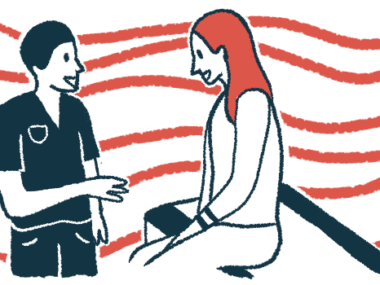Novartis, Atropos to use AI to find undiagnosed PNH patients
Effort seeks to reduce time from symptom onset to testing and treatment
Written by |

Atropos Health will partner with Novartis to develop artificial intelligence (AI) models to help identify people with rare diseases, such as paroxysmal nocturnal hemoglobinuria (PNH), who haven’t yet been diagnosed.
Using AI algorithms trained on real-world data, the collaboration seeks to reduce the time from the onset of symptoms to testing, diagnosis, and treatment.
“The accuracy of the models reduces the guesswork and patients who are able to get testing sooner provides a potentially life-changing experience,” Brigham Hyde, PhD, CEO and co-founder at Atropos, said in a company press release. “For providers and health systems, faster time to diagnosis and treatment equate to higher patient satisfaction.”
Detecting PNH
People with PNH carry acquired mutations in some of their blood stem cells. As a result, their blood cells, particularly their red blood cells, are susceptible to premature destruction by the complement system, a part of the immune system. Common symptoms of PNH include blood in the urine, low blood cell counts, shortness of breath, fatigue, blood clotting problems, trouble swallowing, and abdominal pain. Standard treatments work by blocking steps in the complement cascade, thereby preventing blood cell destruction.
Because the disease is rare and often manifests with varied and nonspecific symptoms across multiple organs, people with PNH often see lengthy diagnostic delays of more than a year, according to Atropos.
As part of the collaboration with Novartis, Atropos has developed an initial AI model that was trained using electronic health records covering 67 million patients in the U.S. From more than 350 potential clinical characteristics tested, 13 were selected to analyze, including age and the outcomes of various clinical assessments.
In a validation test, the AI model predicted PNH with an AUC of 0.77, according to Atropos. AUC is a number between zero and 1 that shows how well a test can distinguish between two states — in this case, whether or not PNH was present, with values closer to 1 reflecting better accuracy.
“Accelerating diagnosis and treatment through AI and machine learning has the power to significantly improve patient outcomes by enabling faster access to appropriate care,” said Rodney Gillespie, head of oncology at Novartis U.S. “Our collaboration with Atropos Health to develop an AI model for identifying PNH embodies this commitment as it advances precision health, potentially enabling earlier diagnosis and timely care, reducing delays that can greatly affect patients’ lives.”
The models created by Atropos will be implemented across health system members of the Atropos Evidence Network, which will be integrated at the point of care to enhance the experience of patients and providers. The AI model to detect PNH is now available for health systems.






